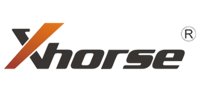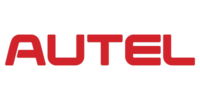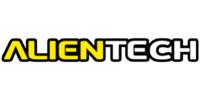Look here: Procedure in detail will be of interest to those contempating a PCM change
After reading this, it is obvious that PCMs can be reprogrammed.
I have flash DVD for the DRB III, hopefully I will get it and can then do programming on a “swap” system. Keeping my fingers crossed.
It is Chrysler’s new “policy”
Mopar® is currently phasing out pre-programmed PCMs for the vehicles listed. New
modules will no longer be pre-programmed when received from Mopar®. Replacement of
future PCMs will require programming utilizing the DRBIII and TechCONNECT. The PCM
will not operate the engine until it is programmed. A Diagnostic Trouble Code (DTC) will be
set – “not programmed”.
CAUTION: Extreme care must be taken when programming a calibration into a
generic PCM. Do not randomly select a calibration. Once a calibration is
selected and programmed, the controller cannot be reprogrammed to a
different calibration. The module can only be reprogrammed to a more
recent version of that calibration.
When flashing a 2002 – 2004 LH vehicle the BCM may need to be
disconnected if experiencing failures during the flash of the transmission
portion of the PCM. The BCM will need to be disconnected after the module
ID portion of the flash is complete. Before pressing Page Forward to begin
the flash of the PCM Turn the Key to the OFF position and disconnect the
BCM. Then turn the KEY to the RUN position and Press Page Forward to
begin the PCM flash session.
NOTE: If this flash process is interrupted/aborted, the flash should be restarted and
then follow the directions on the DRBIII emulator.
Step 1. Before beginning the reprogramming procedure, remove any old flash reprogramming
files from the DRBIII memory. To clear the memory from the MAIN MENU power up
the DRBIII and then:
a. Simultaneously press the “MORE” and “YES” keys.
b. A screen will appear requesting a “COLD BOOT”.
c. Follow the on screen instructions by selecting the “F4” key.
d. When the DRB III® reboots to the MAIN MENU, proceed to Step 2.
NOTE: If your vehicle is a 2002 LH and the original PCM part number begins with 04
the technician should use the 2002 LH Part Number Reference chart above to
determine the corresponding “NEW” part number. This new number from the
chart should then be entered into the Tech tools application as the orginal
part number. If the original PCM number begins with 05 no change to the
flash selection process is required.
Step 2. With the ignition switch in the “RUN” position, determine the original part number of the
PCM currently in the vehicle. Using the DRBIII select:
a. “DRBIII Standalone”
b. “1998 – 2004 Diagnostics”
c. “All (Except Below)”
d. “Engine”
e. “Module Display”
f. Record the first ten (10) characters of the “PCM part #” on the repair order for later
reference.
NOTE: If the PCM is not operational, the part number can be obtained from the label
on the old controller. If the label on the controller is not legible, proceed to
next step.
Step 3. Page back to the “Main Menu”
Step 4. Determine if the vehicle is equipped with SKIM. Using the DRB3 select:
a. “DRBIII Standalone”
b. “1998 – 2004 Diagnostics”
c. “All”
d. “System Monitor”
e. “J1850 Module Scan”
f. Look for “SKIM” in the list of modules.
Step 5. If the vehicle is not equipped with SKIM then proceed to step 6. If the vehicle is
equipped with SKIM obtain the vehicle Personal Identification Number (PIN) before
continuing with step 6. This information is available from one of the following:
a. The original selling invoice.
b. The DealerCONNECT system under the “Sales” or “Parts” tabs – select “Key
Codes”.
c. By contacting the DaimlerChrysler Customer Assistance Center (DCCAC) at
1-800-992-1997.
CAUTION: Failure to install the SKIM pin number into the module after flashing the
PCM will cause a start and stall condition.
Step 6. Replace the PCM using the appropriate generic control module. Refer to the service
information available in TechCONNECT or the appropriate service manual in Section
8E, Electronic Control Modules, Powertrain Control Module, Removal/Installation.
Step 7. Open the hood, install a battery charger and verify battery state is above 11.5 volts.
Step 8. If the old “PCM part #” is known, proceed to step 14. If the old “PCM part #” is not
known, proceed to next step.
Step 9. On DealerCONNECT select the “Service” tab.
Step 10. Select “Vehicle Information Plus”.
Step 11. Manually enter the VIN and mileage and select “Enter”.
Step 12. Select the “Vehicle Option” tab.
Step 13. Under the “Vehicle Option” window, identify and record:
a. Engine.
b. Emissions (Federal or California).
c. Transmission (Automatic, 5-speed manual, etc.).
Step 14. Connect the DRBIII to TechCONNECT and the vehicle. Open TechTOOLS and
verify that the “DRBIII Status: Connected” message is in the upper right corner of the
TechTOOLS screen.
Step 15. TechTOOLS should automatically populate the VIN in the “Vehicle Criteria” area and
the available updates. If not, manually enter the VIN then TechTOOLS will populate
the available updates.
NOTE: Do NOT enter the generic controller part number in step 16a below.
Step 16. Determine the proper calibration:
a. If the old “PCM part #” is known, enter the part number of the old controller in the
“Parts Criteria” p/n window. Proceed to step 16.
b. If the old “PCM part #” is not known, select the correct calibration based on the
information that was recorded from “Vehicle Options” in step 13.
Step 17. Select the correct calibration.
Step 18. Select the “Download/Update” button.
Step 19. Monitor the “Flash Download/Update Progress” window on the TechCONNECT and
follow the instructions on TechCONNECT/DRBIII. When the flash process is
completed, proceed to next step.
Step 20. Enter the VIN in the PCM. Using the DRBIII select:
a. “DRBIII Standalone”
b. “1998 – 2004 Diagnostics”
c. “All”
d. ”Engine”
e. “Miscellaneous”
f. “Check VIN”
g. If the vehicle is not equipped with SKIM proceed to step 20h. If the vehicle is
equipped with SKIM follow the directions on the DRBIII. When the VIN and SKIM
key has been programmed, proceed to step 20.
h. Enter the VIN as requested by the DRBIII.
Step 21. Update the PCM mileage. Using the DRBIII select:
a. “DRBIII Standalone”
b. “1998 – 2004 Diagnostics”
c. “All (Except Below)”
d. “Engine”
e. “Miscellaneous”
f. “Check PCM Odometer”
g. “NO”
h. Enter the current odometer mileage and then press “Enter”.
-9- 18-006-04 REV. B
i. Cycle the ignition key to the OFF position and back to the ON position and then
press “Enter”.
Step 22. Proceed as follows:
a. If the vehicle is equipped with an automatic transmission, proceed to step 24.
b. If the vehicle is equipped with a non-turbo engine and manual transmission, it is not
necessary to set the pinion factor. Proceed to step 24.
c. If the vehicle is equipped with a Turbo engine and manual transmission, proceed to
step 23.
Step 23. On vehicles equipped with a Turbo engine and manual transmission, set the Pinion
Factor. Using the DRB III select:
a. “DRBIII Standalone”
b. “1998 – 2004 Diagnostics”
c. “All (Except Below)”
d. “Engine”
e. “Miscellaneous”
f. “Pinion Factor”
g. Select the correct tire size and then select “Page Back” to exit.
h. Proceed to step 24.
Step 24. On vehicles equipped with an automatic transmission, set the Pinion Factor. Using the
DRBIII select:
a. “DRBIII Standalone”
b. “1998 – 2004 Diagnostics”
c. “All (Except Below)”
d. “Transmission”
e. “Transmission Module”
f. “Miscellaneous”
g. “Pinion Factor”
h. Select the correct tire size and then select “Page Back” to exit.
i. Enter “Quick Learn” and then follow the instructions on the DRBIII.
NOTE: Due to the PCM programming procedure, a DTC may be set in other modules
(TCM, BCM, MIC, SKIM, etc.) within the vehicle, if so equipped. Some DTC’s
may cause the MIL to illuminate. Check all modules using “Module Scan”,
record the DTC’s, and erase these DTC’s prior to returning the vehicle to the
customer. Erase any DTC’s in the PCM only after all other modules have had
their DTC’s erased.
NOTE: The following step is required by law.
Step 25. Type the necessary information on the “Authorized Modification Label” p/n
04275086AB and attach near the VECI label (Fig. 1).
You have to know: esp. for newbies
You’d better take a VCI Pod for use with DRB iii, NOT the clone Micropod 2 (even the high quality SP271-C1 cannot work good with DRB emulator. ) look here: http://blog.obdii365.com/2019/01/16/drb3-emulator-worked-with-micropod-2-or-vci-pod/ tested on 300M. VCI Pod says yes but Micropod2 clone cannot work….




















